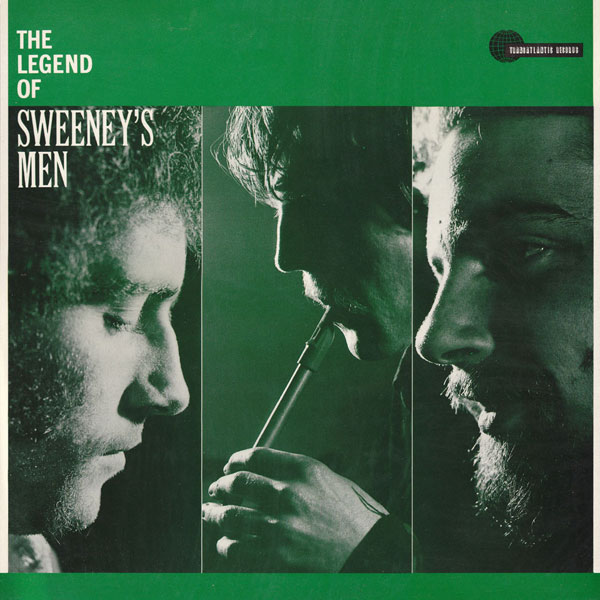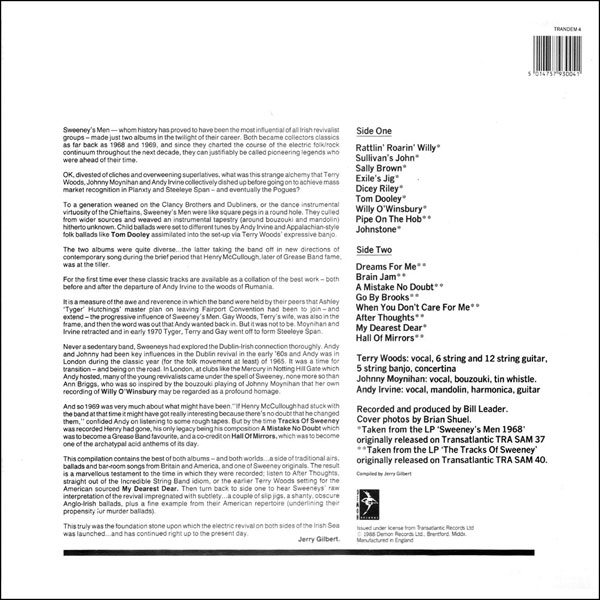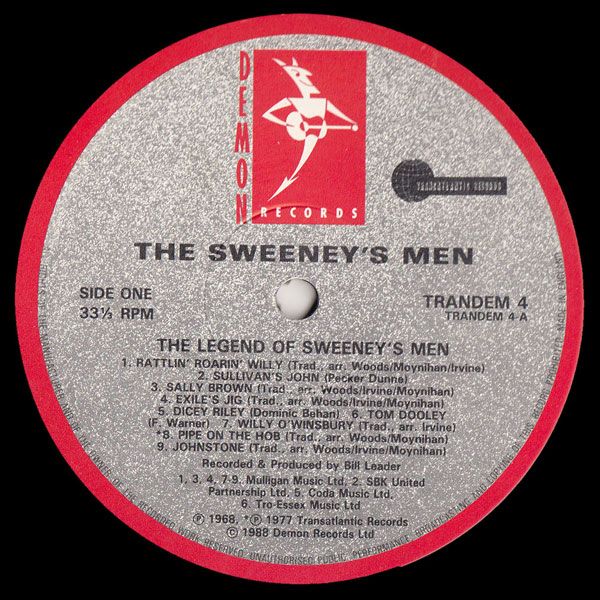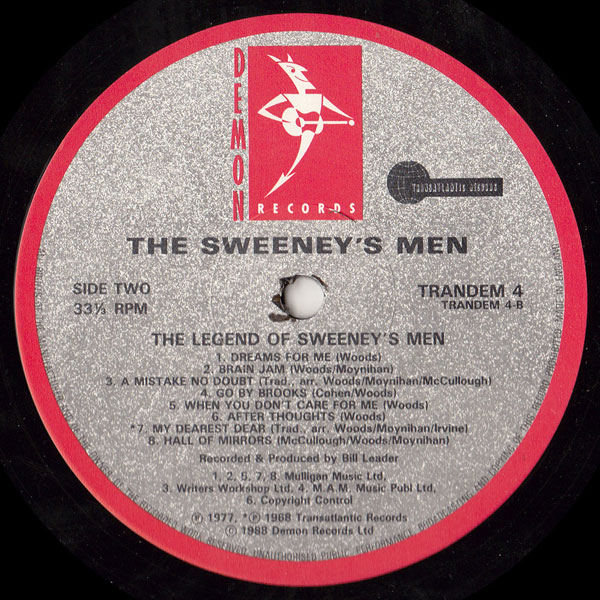
 |


 |
Sleeve Notes
Sweeney's Men — whom history has proved to have been the most influential of all Irish revivalist groups — made just two albums in the twilight of their career. Both became collectors classics as far back as 1968 and 1969, and since they charted the course of the electric folk/rock continuum throughout the next decade, they can justifiably be called pioneering legends who were ahead of their time.
OK, divested of cliches and overweening superlatives, what was this strange alchemy that Terry Woods, Johnny Moynihan and Andy Irvine collectively dished up before going on to achieve mass market recognition in Planxty and Steeleye Span — and eventually the Pogues?
To a generation weaned on the Clancy Brothers and Dubliners, or the dance instrumental virtuosity of the Chieftains, Sweeney's Men were like square pegs in a round hole. They culled from wider sources and weaved an instrumental tapestry (around bouzouki and mandolin) hitherto unknown. Child ballads were set to different tunes by Andy Irvine and Appalachian-style folk ballads like Tom Dooley assimilated into the set-up via Terry Woods' expressive banjo.
The two albums were quite diverse … the latter taking the band off in new directions of contemporary song during the brief period that Henry McCullough, later of Grease Band fame, was at the tiller.
For the first time ever these classic tracks are available as a collation of the best work — both before and after the departure of Andy Irvine to the woods of Rumania.
It is a measure of the awe and reverence in which the band were held by their peers that Ashley 'Tyger' Hutchings' master plan on leaving Fairport Convention had been to join — and extend — the progressive influence of Sweeney's Men. Gay Woods, Terry's wife, was also in the frame, and then the word was out that Andy wanted back in. But it was not to be. Moynihan and Irvine retracted and in early 1970 Tyger, Terry and Gay went off to form Steeleye Span.
Never a sedentary band, Sweeneys had explored the Dublin-Irish connection thoroughly. Andy and Johnny had been key influences in the Dublin revival in the early '60s and Andy was in London during the classic year (for the folk movement at least) of 1965. It was a time for transition — and being on the road. In London, at clubs like the Mercury in Notting Hill Gate which Andy hosted, many of the young revivalists came under the spell of Sweeney, none more so than Ann Briggs, who was so inspired by the bouzouki playing of Johnny Moynihan that her own recording of Willy O'Winsbury may be regarded as a profound homage.
And so 1969 was very much about what might have been. "If Henry McCullough had stuck with the band at that time it might have got really interesting because there's no doubt that he changed them," confided Andy on listening to some rough tapes. But by the time Tracks Of Sweeney was recorded Henry had gone, his only legacy being his composition A Mistake No Doubt which was to become a Grease Band favourite, and a co-credit on Hall Of Mirrors, which was to become one of the archetypal acid anthems of its day.
This compilation contains the best of both albums — and both worlds … a side of traditional airs, ballads and bar-room songs from Britain and America, and one of Sweeney originals. The result is a marvellous testament to the time in which they were recorded; listen to After Thoughts, straight out of the Incredible String Band idiom, or the earlier Terry Woods setting for the American sourced My Dearest Dear. Then turn back to side one to hear Sweeneys' raw interpretation of the revival impregnated with subtlety … a couple of slip jigs, a shanty, obscure Anglo-Irish ballads, plus a fine example from their American repertoire (underlining their propensity for murder ballads).
This truly was the foundation stone upon which the electric revival on both sides of the Irish Sea was launched … and has continued right up to the present day.
Jerry Gilbert